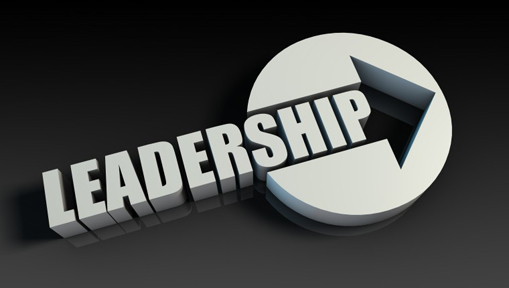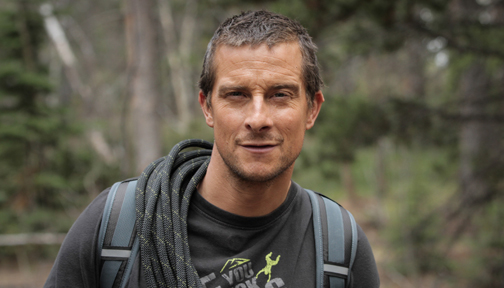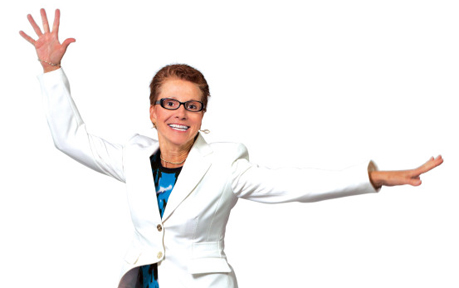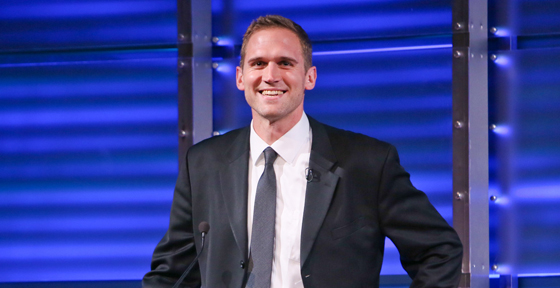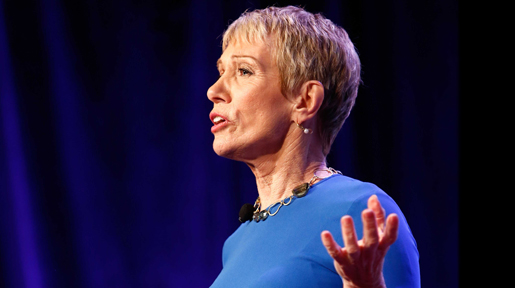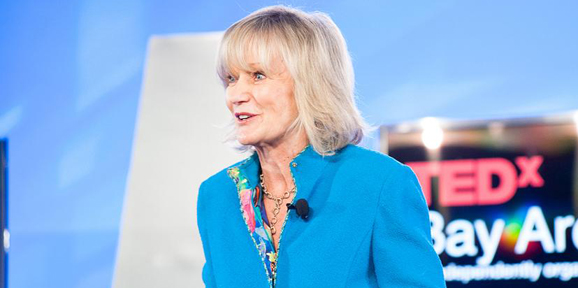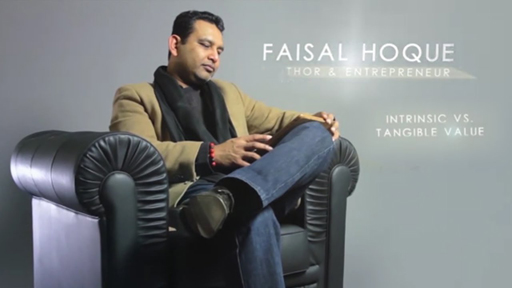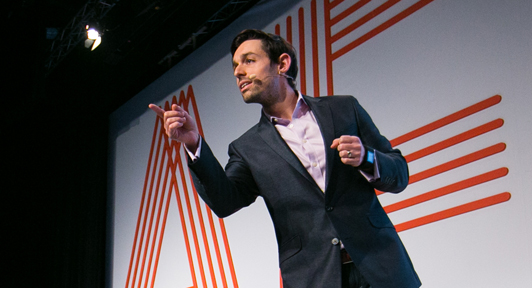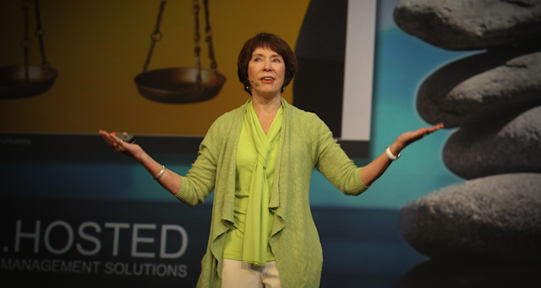
How to Foster Resiliency, with Eileen McDargh
| True resiliency is about growing THROUGH either challenge or opportunity to become wiser and stronger. | |
| |
 | How is resiliency today more than “bouncing back in the face of rejection”? |
 | First, in human terms, resiliency has never been about “bouncing back”. That concept works fine for willow trees and bent steel but it is insufficient for humans. True resiliency is about growing THROUGH either challenge or opportunity to become wiser and stronger. As the saying goes, you can’t step into the same river twice; the water moved on and so does life. People who are not resilient keep looking for “back”, but there is no going “back”.
For humans, then, resiliency is about energy and grit. Notice I also said that resiliency is growing through challenge or opportunity. Rejection is just one form of challenge. A great opportunity can also require resiliency (energy and grit). I believe that resiliency is a life skill and as with any skill, it can be learned and practiced. Today’s 24/7, highly connected, media-saturated world can alert us to more challenges and opportunities to test our resiliency. Thus it “seems” different from times past. However, the pioneers who took wagon trains across the United States, the navigators who charted unknown seas, the builders of pyramids and cathedrals also required resiliency. |
 | How do resilient people act differently? |
 | First, resilient people THINK differently. They operate from a mindset that is defined by an internal locus of control. They do not believe that life’s events control them. Resilient people believe rather they have control to choose their reactions. From that belief, resilient people act. They are willing to explore options, to try different things, to reframe, and to practice intelligent optimism. A so-called failure becomes a learning experience. |
| As Lincoln said at the height of the Civil War, “If I didn’t laugh, I would cry.”...Laughter is actually perspective and allows us to NOT take ourselves so seriously. | |
| |
 | What are the four resiliency skills? |
 | Skill #1: Adaptability. Adaptability is the willingness to seek multiple ways of responding to any given situation, event, or person. The key here is the term “multiple”. I think of it in biological terms as requisite variety. Requisite variety states that the organism with the greatest number of responses is the one that survives. Thus, for individuals as well as organizations, creating multiple ideas, strategies, products, designs, and more affords more opportunity for thriving. On the other hand, negativity, pessimism, and a resistance to change hamper adaptability. Outmoded ways of behaving and thinking can hamper potential growth. Consider the demise of Eastman Kodak. The world had changed but Kodak did not. Adaptability means challenging the status quo, seeking what others know, and a willingness to experiment. Skill #2: Agility. Agility refers to taking action, to turning left when the world turns right. Agility is speed coupled with wisdom. It is not a knee-jerk response but rather measured action. Think of agility as a gymnast who can spin in mid-air and land on her feet. Without action, evaluation of the action, and alterations of that action, it is hard to grow through an event or opportunity. Skill #3: Laugh-ability. Laughter and play are great healers and energy-restorers. When we laugh, when we play, we release healing endorphins. As Lincoln said at the height of the Civil War, “If I didn’t laugh, I would cry.” He was known for his wry sense of humor and creating laughter at his own expense. Laughter is actually perspective and allows us to NOT take ourselves so seriously. Play is a “kissing cousin” of laughter. People who take time to play can be more creative and more energetic. Consider Southwest Airlines, a carrier known for its playful nature as well as its incredible profitability. It was during a playful event that some Southwest employees created what all airlines now use: the computer-based check-in terminals. Play and laughter are also great bonding tools for relationships. Laughter is indeed the common denominator across all nationalities. Skill #4: Alignment. Alignment means that someone knows what his purpose is and thus can keep on “keeping on” because it has personal meaning. Viktor Frankl, in the midst of the horror of the Holocaust and his imprisonment in a concentration camp, proclaimed: “Those who have a 'why' to live, can bear with almost any 'how'.” If one senses there is no meaning or reason to life, energy is drained and resiliency is absent. |
 | What is the correlation between our relationships and our resiliency? |
 | Relationships require energy. A negative relationship is an energy-drainer, zapping our ability to grow. That’s why the research has remained consistent: more people leave companies due to poor relationships with managers than any other reason. |
 | What are a few strategies for dealing with people who drain you? |
 | How can I count the ways! Remember, adaptability is the key to finding multiple ways of responding to a draining relationship. Obviously, one choice is to stop the relationship. However, that negates the ability to grow through and learn from that relationship, so here are some alternative strategies:
|
| Leaders who ask employees what they are interested in versus what are they good at can find rich, deep conversations. | |
| |
 | What are some actions leaders can take to retain their employees and keep them energized? |
 | Employees want to feel valued, listened to, and empowered. They want autonomy, mastery, and purpose, but every employee is different. For some, autonomy might mean training and personal development so they can produce great results without micromanaging. Leaders who ask employees what they are interested in versus what are they good at can find rich, deep conversations. Example, I am good at writing press releases but I am not interested in doing that. For work to be rewarding for me, I am more interested in using the written and spoken word to help others develop their potential.
In the age of social media and impersonal chatter, a leader who takes time to really connect with employees and know more about them than items on a resume, will keep a follower. Granted, remote teams seem to make this impossible. However the presence of Skype, Zoom, and other video tools can let a leader see and talk with (not at) employees. Consider, too, being vulnerable. Being vulnerable means that a leader KNOWS and admits that she doesn’t have all the answers. Asking for help and involving others can go a long way for creating a team of equals where all feel valued. |
 | When we talk about time management, why do you think “sailing” is a better word than “balancing”? |
 | The word “balance” puts a picture in our head that is impossible to achieve: a weight scale. Balance implies equality but life will never be equal. I also don’t believe in time management. I believe in life management. Thus, if I use the picture of a sailboat and sailing thru life, I have a more realistic opportunity to make choices.
Consider a single-person sailboat. From the beach, a sailboat with a sheet full of wind might look as if it is out of balance. However, what allows the sailboat to glide through the water is the sailor’s connection to the most important parts of the boat – that CONNECTION is what matters. Likewise, when the wind shifts, the sailor must also shift, remaining connected but with less tension on the sheet. Trust me, the wind comes up in all our lives. Other analogies to sailing are appropriate. Just like sailing involves cycles of the tides and phases of the moon, our life goes through cycles and phases. Consciously recognizing a “phase” and making adjustments allow for more solid “sailing”. |
 | What is “SAD” and what are the symptoms? |
 | SAD is situational attention deficit disorder. When we have so much that calls for our attention, we no longer know what to do first. Instead of focusing on one thing, our monkey mind jumps from tree to tree. Hence, we can forget who we called or why we walked into a room. |
| Our brains are not wired to multi-task even though we claim we can. | |
| |
 | Why is multi-tasking not really efficient? |
 | Our brains are not wired to multi-task even though we claim we can. When we are pulled from work to answer an email that popped up or respond to a text, it can take many minutes for us to get back to what we had initially been working on. While we will not abandon our multi-tasking efforts, we can create some boundaries. This might be everything from an auto-responder that announces when you will read email to a “do not disturb” sign on your door. |
 | Your mother had a very unique past: she was one of the Women Air Force Service Pilots during World War II. How did her influence shape your career and focus on resilience? |
 | Mother was one of 1076 women who flew for the military in WWII. She was also one of 3 women in med school in the 1930s. She was always willing to take risks for what she saw was her purpose in life. Thus, alignment was part of her core. She would step out where few women dared and that has influenced my career. I started speaking about leadership and change at a time when few women were speaking AND those that were, spoke about dress for success and time management.
Mom had many setbacks but always found a way to grow through them and learn – plus laughter and play were her modus operandi. Play could be small: like making sandwiches with bread cut from cookie cutters and drawing funny pictures on our lunch bags. She’d invent crazy parties for her friends and taught us the words to old WWII songs. To this day I can sing songs no one my age knows. ================================================================= |

